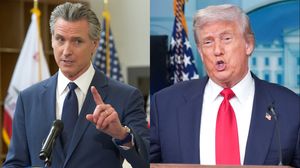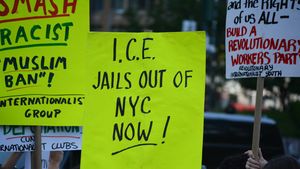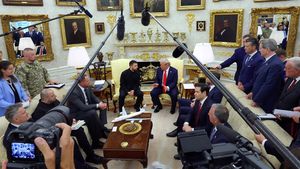Nineteen
governments are committed to levying a tax on airline
tickets as part of a new way to treat people in poor
countries for AIDS, tuberculosis, and malaria,
France's foreign minister said Monday.
"We need to be
and can be even more," said Philippe Douste-Blazy, who
heads the program called UNITAID, which brings together
national governments, U.N. agencies, international
organizations, and others to tackle some of the
world's worst diseases.
France started
imposing the tax in July, but 18 others have signaled they
will join in, he said. They include Brazil, the United
Kingdom, Chile, Cambodia, Cameroon, Congo, Cyprus,
Gabon, Guinea, Ivory Coast, Jordan, Luxembourg,
Madagascar, Mali, Mauritius, Nicaragua, Norway, and South
Korea, officials said.
UNITAID plans
initially to spend $63 million this year and about $378
million next year to give 100,000 children access to
antiretroviral treatment and 150,000 children
treatment against tuberculosis, Douste-Blazy said.
France is
charging $1.26 tax per ticket for domestic and European
flights and $5 for international flights. For
business-class travelers, the tax is 10 times higher,
Douste-Blazy said. The French receipts of $88 million
for this year and an estimated $250 million for 2007 will be
transferred to UNITAID, which is based at the World
Health Organization.
Airlines,
including France's national carrier, Air France, have
claimed that the tax will hurt business and tourism.
But Douste-Blazy
said he did "not believe for a single moment that
fewer tickets would be sold because you pay [one euro]
more."
Levying taxes on
air transport is a way to redistribute the benefits of
globalization and to secure long-term funding, Douste-Blazy
said. He said the new multicountry system was
"revolutionary" and an example of "world citizens"
supporting each other.
But much more
money is needed, Douste-Blazy said: "We know there's a
global lack of $50 billion per year to fight against poverty
and diseases."
Acting WHO
director-general Anders Nordstrom said governments have
given more money to fight HIV/AIDS, tuberculosis, and
malaria in recent years but that the new initiative
and other fund-raising methods were needed as well.
"If you take
tuberculosis, the estimated need is $3 billion," he
said. "The majority of these resources needs to come from
countries themselves."
The long-term
strategy of UNITAID is that predictable funding will create
a demand for medicines against these diseases and thus spur
the pharmaceutical industry to increase production
capacities and lower the prices.
But, Douste-Blazy
added, "it seems to me completely normal that the
pharmaceutical industry should participate in the process
not to make money but to ensure that every person on
the planet can be treated regardless [of whether they
are] rich or poor." (Eliane Engeler, AP)





































































